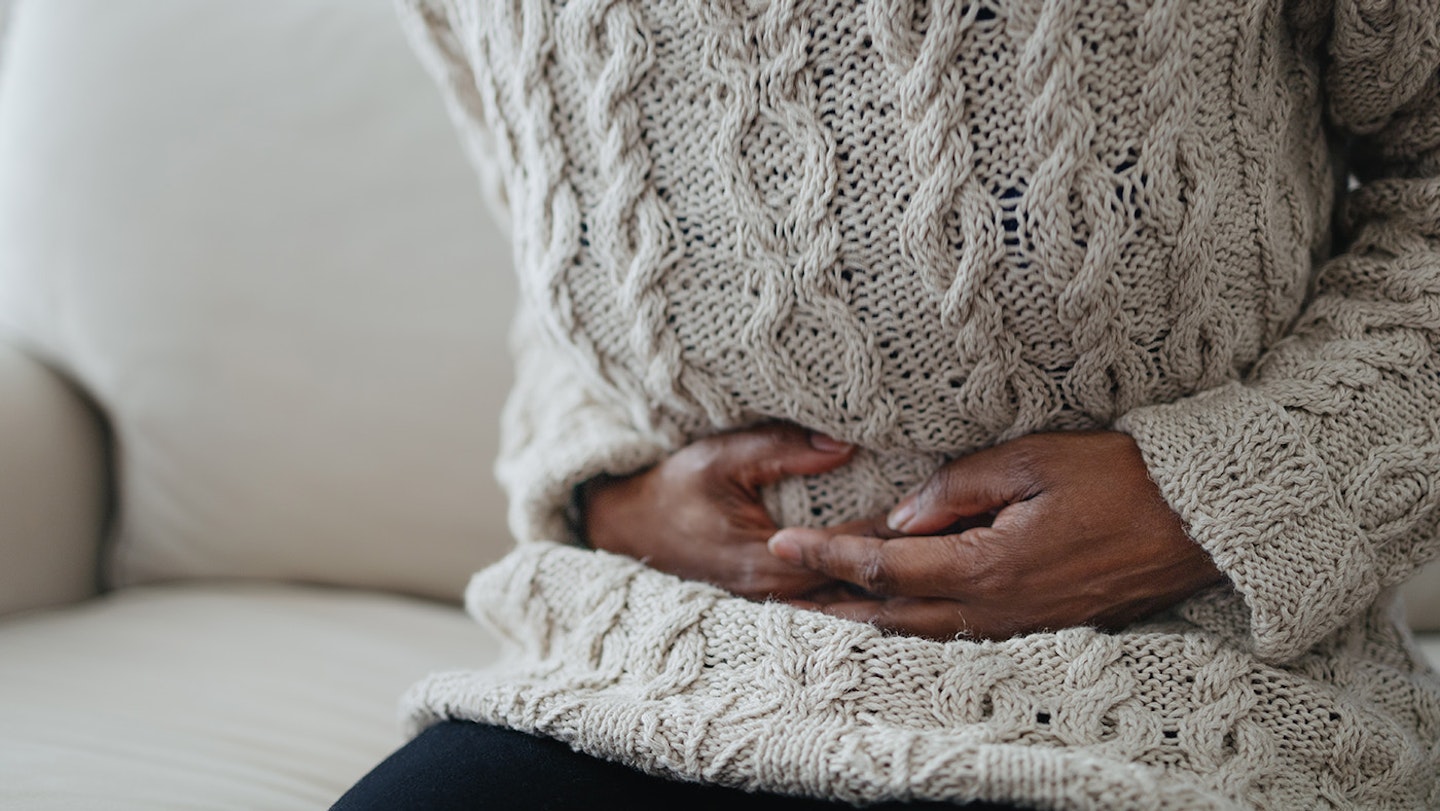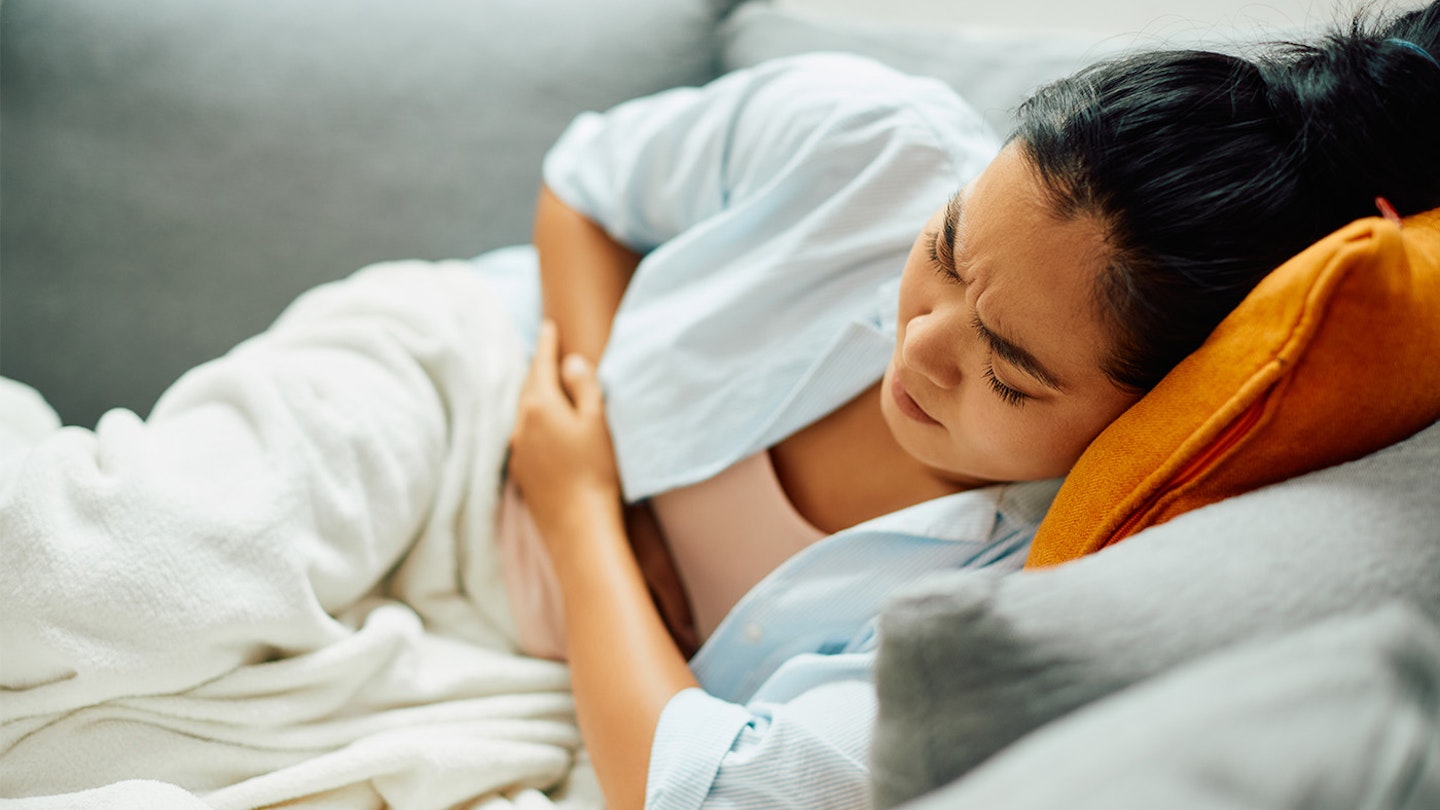I was just 15 years old when I can first remember experiencing symptoms of endometriosis.
It was my very first period, it was incredibly heavy, lasted eight weeks on and off and the pain was something I had never felt before.
My mum was great and knew what to do. Having suffered from painful and heavy periods herself, she knew something wasn’t right and took me to our GP to get some advice. That advice was the usual ‘quick fix’ of the late ’80s; A prescription of the contraceptive pill.
No tests, no examination. Just a pill every day to deal with regulating my period.
The pill, didn’t ease symptoms, it just regulated my periods to a monthly vicious cycle of being curled up in pain, bleeding through super-plus tampons and feeling incredibly alone despite the amazing support of my mum.
I’d head back to the GP every so often over the years, asking for more help, that 'surely this wasn_’t normal?’_ to be told that it was just part of period life, everyone was different, my periods were just heavier than others, to not compare and to certainly not worry.

So, I stopped complaining. Stopped going to the GP. Stopped worrying, and instead, like so many people with endometriosis, I learned to mask my period stress and pain and try to cope with the emotional and physical struggle that came each month.
I’d prepare for each month in advance. Ensure I was stocked up on the right sanitary products, painkillers, favourite food and ensure I didn’t make special plans for that week. Absolutely everything had to be planned to get me through those seven long days. Sometimes, however, I knew I’d not cope.
A wedding, a friend's birthday party, a holiday - I knew there was no way I could attend if it was my period, so I would just carry on my pill pack against the advice of my GP, and skip a month knowing the next time would be ten times worse. A big price to pay for not missing important events.
I carried on like this for twenty years until my husband and I decided to try for a baby. I came off the pill and then the enormity of my period problems became clear when we couldn’t conceive. We were referred to a specialist for tests, during which, my stage 4 endometriosis diagnosis was revealed. I was absolutely broken.
What is endometriosis?
Endometriosis is a condition where the tissue that normally lines the inside of the uterus, grows outside of the uterus. Lesions of abnormal tissue may shed and become inflamed or cause cysts and scar tissue.
Most commonly, endometriosis grows on the surface of the uterus or the pelvic floor (s_uperficial peritoneal lesions_) or the fallopian tubes and ovaries (Endometrioma ovarian lesions). These lesions can also spread to the intestines, rectum and other organs (deeply infiltrating endometriosis).
Stage 4 endometriosis explained
The most used scale for defining the stages of endometriosis comes from the American Society of Reproductive Medicine. According to ASRM the stages are:
Stage 1 Endometriosis or 'minimal endometriosis' means there are a few small implants of endometrium-like cells.
Stage 2 Endometriosis or 'mild endometriosis' means there are more implants than in stage 1. There may also be some more scar tissue present as the cells embed deeper into the tissue
Stage 3 Endometriosis or 'moderate endometriosis' means there are many deep, visible implants. It’s also likely that there are cysts present on the ovaries as well as thick scar tissue, called adhesions.
Stage 4 Endometriosis or 'Severe endometriosis' is the most widespread stage of the condition. Here, it is likely that you’ll have lots of deep implanted cells around the body. You may also have large cysts on one or both of your ovaries.
How do I know if I have endometriosis?
People with endometriosis may have symptoms that include:
• severe menstrual cramps
• pain during sexual activity
• painful bowel movements
• pain when urinating
• periods that are heavier and longer than usual
• spotting, or bleeding between periods
• pelvic pain
There are also a few uncommon symptoms of endometriosis to be aware of too.
I had all of these symptoms since day one of my first period. I had coped for so long and now I finally had an answer to what I’d been going through month after month, year after year. Not one GP had thought to check something more serious than a ‘heavy period’ was going on. I was devastated.
What should I do if I think I have endometriosis?
Please go and see your GP if you think you have endometriosis, or indeed have any abnormal symptoms with your periods. It’s helpful to write down all of your symptoms before you go, so you can go through everything clearly.
Please don’t take no for an answer. You know your body! If you feel something is wrong, if your periods are making life unbearable and stopping you from doing simple daily tasks, please insist on a referral to a gynaecologist.
It still upsets me to know all those years ago my GP could've saved years of painful periods and fertility heartache if I’d just had some basic tests. Instead, the quick fix answer to everything, 'the pill' was prescribed and I just stopped complaining. I was made to think I was just being silly and not coping with periods.

After several trips to A&E over the years, excision surgeries, fallopian tube cannulations and fertility treatments, my endometriosis had a happy ending in a wish to have children finally coming true. Two babies born less than a year apart with comfortable, easy and healthy pregnancies, almost made me forget the pain of endometriosis.
Sadly, endometriosis doesn’t just go away, and a year after my second child was born, I was back in surgery for more excision surgery to release the painful symptoms of the condition.
Finally, in 2016, when my little ones were only 5 and 6 years old, my endometriosis reached emergency status. The lesions were forming around my bowel and bladder and growing towards other vital organs. The pain had become so bad that during my period, the simplest of tasks would result in me curling up in a ball on the floor crying out in pain. It was an extremely frightening time. Being a mum changes everything from just thinking about yourself, to thinking about the little ones who need you.
So, in 2016, under the advice of my consultant, I had a Total Laparoscopic Hysterectomy (TLH) which involved surgery to remove my uterus, cervix and fallopian tubes. I went into surgery with the understanding the endometriosis that was around my bowel may mean removing a section of bowel, and needing a colostomy. Luckily my amazing surgeon managed to free the bowel and bladder without damage and although I had a few complications afterwards, they were mild and I was back on my feet within 3 months.
I can honestly say I have never felt physically better in my life since my hysterectomy. It hasn't been an easy ride to recovery. The hysterectomy was incredibly tough to go through and isn’t the answer for everyone, but for me, it was life-changing. I finally feel free.
My hope is that by sharing my story, by raising awareness of endometriosis, others can get help and support with coping before their condition worsens.
Attitudes towards diagnosing, treating and supporting those with Endometriosis and other gynaecological conditions are changing slowly, but we still have a long way to go. 1 in 10 people in the UK suffers from this condition but it still takes an average of eight years to receive a diagnosis.
For more help, support and advice on endometriosis head over to Endometriosis UK.
